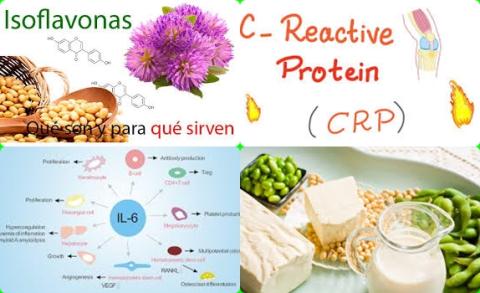
Objectives:
Soy products contain several compounds with anti-inflammatory properties like genistein and daidzein which reported to act through different pathways. However, there are inconsistent results and lack of any comprehensive review regarding randomized controlled trials which assess the effect of soy products on inflammatory markers. Therefore, this review article has been conducted.
Does soy product supplementation reduce levels of inflammatory markers, like CRP, IL-6?
Study design:
This review article included 51 RCTs.
Results and conclusions:
The investigators found soy product supplementation significantly reduced CRP levels [MD = -0.27 mg/L, 95% CI = -0.51 to -0.02, p = 0.028] but it did not affect IL-6 [MD = 0.0 pg/mL, 95% CI = -0.06 to 0.06, p = 0.970] and TNF-α [MD = -0.04 pg/mL, 95% CI = -0.11 to 0.03, p = 0.252].
The investigators found subgroup analysis showed that soy supplementation had a significant impact on decreasing IL-6 and TNF-α levels when studies had a long-term intervention (≥12 weeks) and used low dose isoflavone (100 mg/day).
The investigators concluded there is a significant reduction in CRP levels after soy product supplementation.
Original title:
The effects of soy supplementation on inflammatory biomarkers: A systematic review and meta-analysis of randomized controlled trials by Asbaghi O, Yaghubi E, […], Ghaedi E.
Link:
https://pubmed.ncbi.nlm.nih.gov/32979840/
Additional information of El Mondo:
Find here more information/studies about soy consumption and chronic disease.